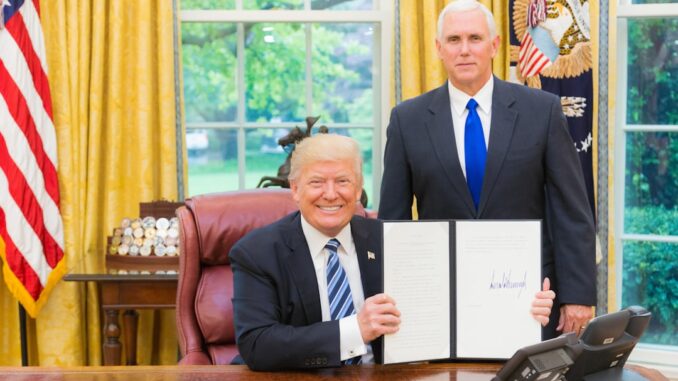
In a decisive move on August 7, 2025, President Donald Trump signed an executive order instructing federal regulators to investigate allegations of discrimination by banks against conservatives and specific industries, such as cryptocurrency companies. The order directs regulators to identify instances of political or religious bias in banking decisions and refer them to the Department of Justice within 120 days. This action targets the practice known as ‘debanking,’ where banks close accounts or refuse service to individuals or businesses deemed risky due to their political affiliations or business activities.
The executive order also requires regulators to eliminate ‘reputational risk’ as a factor in evaluating a bank’s safety—a term previously used to avoid doing business with high-risk industries like firearms and payday lenders. By removing this criterion, the administration seeks to prevent banks from using it as a justification for politically motivated actions. The order further instructs the Small Business Administration to mandate that financial institutions make reasonable efforts to reinstate clients previously denied services due to unlawful debanking.
Investor Identification, Introduction, and negotiation.
President Trump has long criticized major banks for alleged discriminatory practices. He has claimed that institutions like JPMorgan Chase and Bank of America cut ties with him after his presidency, a claim both banks have denied. In a recent interview, Trump stated, “They totally discriminate against… me maybe even more, but they discriminated against many conservatives.” Both banks have responded by emphasizing that they do not close accounts for political reasons and agree that regulatory change is needed.
The banking industry has expressed support for fair access to financial services but has also criticized regulatory overreach. Major banking groups have stated that the executive order helps ensure all consumers and businesses are treated fairly, aligning with the administration’s goal of combating regulatory overreach and vague rules, such as those around ‘reputational risk.’
This move is part of a broader conservative campaign against perceived financial discrimination. Senator Tim Scott of South Carolina has introduced legislation to prohibit banks from using reputational risk in regulatory assessments, applauding the order as a move to protect Americans’ access to banking services. The administration’s actions also address concerns that banks have been involved in surveillance programs targeting conservatives, influenced by the prior Democratic administration.
The executive order has significant implications for the digital assets industry, which has faced challenges in accessing banking services. The administration’s focus on debanking practices aims to create a more open financial environment for digital assets, responding to allegations of politically motivated account closures and restrictive policies by major banks.
As the investigation unfolds, banks are under scrutiny to ensure compliance with the new directives. The financial sector is closely monitoring the situation, awaiting further guidance from regulators on how the order will be implemented and enforced. The outcome of this initiative could reshape the landscape of banking services, particularly for clients and industries previously affected by debanking practices.
In summary, President Trump’s executive order mandates federal regulators to investigate and address alleged discrimination by banks against conservatives and certain industries. By targeting the practice of debanking and eliminating reputational risk as a factor in banking decisions, the administration aims to ensure fair access to financial services for all Americans, including those in the digital assets sector.


Be the first to comment